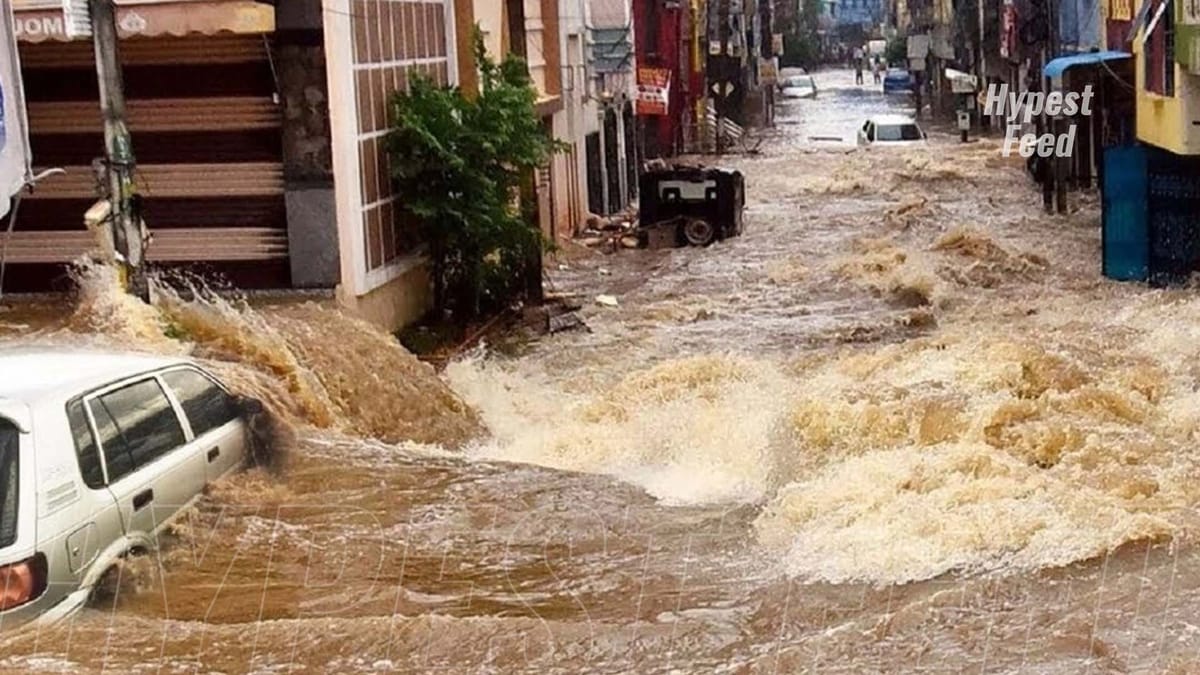Title: "Brazil's Deluge: Deadly Rains Claim Lives, Trigger Mass Displacement"
In a devastating onslaught, Brazil is battling against relentless rains that have inflicted widespread destruction, claiming lives, and displacing thousands across various regions. The torrential downpours, unparalleled in intensity, have inundated vast swathes of the country, unleashing chaos and devastation on an unprecedented scale.
The southern state of Rio Grande do Sul has borne the brunt of this natural disaster, with heavy rains leading to catastrophic flooding and landslides. The death toll continues to climb, with at least 29 lives lost as of the latest reports. The loss of lives is not only a tragic toll but a stark reminder of the urgent need for effective disaster preparedness and response measures in the face of increasingly extreme weather events.
The impact of the floods extends far beyond the loss of lives, as thousands of residents find themselves displaced from their homes, seeking refuge in makeshift shelters and evacuation centers. Entire communities have been submerged under the rising waters, leaving behind a trail of devastation and despair. The scenes of destruction are haunting, with homes reduced to rubble, roads washed away, and essential infrastructure severely compromised.
The challenges faced by emergency response teams are immense, as they navigate treacherous conditions to reach those in need of assistance. Rescue operations are underway round-the-clock, with teams employing all available resources to evacuate stranded residents and provide essential aid to affected areas. However, the sheer scale of the disaster has strained resources to their limits, highlighting the urgent need for coordinated efforts and support from both local and national authorities.
As the floodwaters recede, the extent of the damage becomes increasingly apparent, painting a grim picture of the long road to recovery that lies ahead. Rebuilding efforts will require substantial investments of time, resources, and manpower to restore essential services, rebuild infrastructure, and support communities in their journey towards recovery.
Furthermore, the floods have exposed the vulnerabilities of Brazil's urban infrastructure and underscored the need for sustainable development practices that prioritize resilience in the face of climate change. As extreme weather events become more frequent and severe, proactive measures must be taken to mitigate risks, strengthen infrastructure, and build more resilient communities capable of withstanding future challenges.
In the midst of tragedy, however, there are glimmers of hope as communities come together to support one another in their time of need. Acts of kindness and solidarity abound as volunteers, aid organizations, and ordinary citizens rally to provide assistance and comfort to those affected by the floods. It is this spirit of resilience and unity that will ultimately guide Brazil through this dark chapter and pave the way for a brighter, more resilient future.



Member discussion: